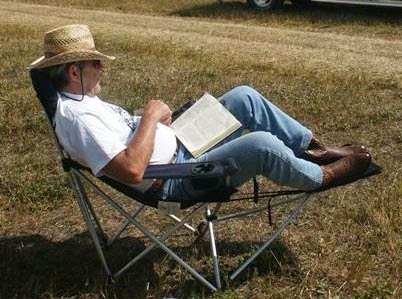My sister Thelma went to be with Jesus this past Friday. She was my only sibling and was three years older than me.
Her passing has raised many emotions in me
which can't simply be summed up under one label. I felt that I needed to attempt to put some
of them down. Please excuse me while I
ramble; I'm trying to be as honest and open as possible. This is very personal.
Perhaps the first feeling I had when I
received the news was one of relief. I
and her family had in a sense been grieving for her for a long time. Thelma had been deteriorating in health for
many years. As a young pregnant teenager she had suffered from polio. And though she recovered fully, in later life
she suffered from what's known as post-polio syndrome. Then she was partially crippled by what
doctors finally determined to be multiple sclerosis. In her last years she was diagnosed with
COPD, which was determined to be the ultimate cause of her death. But what was saddest was that in the last
years of her life she had been sinking deeper into dementia, which showed up
after the death of her husband Jim, 11 years earlier, though there had been
early indicators. Jim, as many faithful
spouses do, had been covering for her.
I also felt the loss of a friend and regrets
that our friendship had not been deeper.
As children, we were not close. There
was a three year difference in our ages
and we differed greatly in personality.
She was gregarious like our father and never lacked friends of both
sexes, while I was shy and bookish. She
struggled with school, while I was an A student with little effort. (I remember many times hearing her say,
"You think school is easy, but just wait till you're in ___ grade!")
Thelma dropped out of high school and got
married young (while I was still in my early teens) and began having children
right away. She and our mother had what
seemed to me an overly close relationship at this time.
Religiously, we differed as well. Though we did not have much religious
upbringing in our home, Thelma seemed to favor our mother's and grandmother's
Catholicism (Christmas and Easter mass).
We both had other exposure in this area and I recall discussing our
mutual faith in Christ with her as we grew older. I followed my faith and became involved in a
rigid Baptist church while she and Jim re-converted to Catholicism.
Thelma was a stay-at-home Mom, birthing and
raising seven kids, never working outside the home, never learning to drive,
dependent to a great extent on our Mom.
Then it seems that at about the age of 40, she went through a great
change -- perhaps a mid-life crisis? She
learned to drive, finished high school and went to work as a cook in a juvenile
detention center, a job she loved and worked at for many years. (She used to say that she cooked for the bad
kids all day and then came home and cooked for her own bad kids.)
It was after this that our friendship
blossomed, though we now lived over 1,000 miles apart. Some summers Uni and I would stay at Thelma
and Jim's home for a week or two while visiting our home town, family and friends.
After Jim passed, her dementia became more
and more of a problem and soon she was placed in an assisted living
facility. As Uni and I would usually
only get to our home town once a year, the changes we'd see would be striking. The deterioration in Thelma's memory
continued to progress. There were,
however, many bright spots and good times.
The losses in her short-term memory seemed to sharpen her long-term
memory. One day we took her for a ride
through the old neighborhood where we had grown up. Uni and I were amazed as Thelma pointed out
the homes of friends and neighbors whom I had long forgotten. While it took me a while to dig out these old
memories, it seemed that to her they were as fresh as yesterday. Uni rolled with laughter in the back seat as
Thelma and I swapped stories of our childhood and engaged in arguments over
details -- which Thelma usually won.
However, a few years later those memories too began to disappear.
Thelma did not live an easy life; the last
years were very hard, but I believe she lived a good life and a happy one. She knew love and she showed love. I believe that today she's celebrating with
her Savior and her departed loved ones.
Music somehow ministers to us in our grief. An old gospel song came to mind as I sat the
first couple of days just thinking of my sister -- her life and her passing --
The Wayfaring Stranger.
I'll see you over there Sis!



